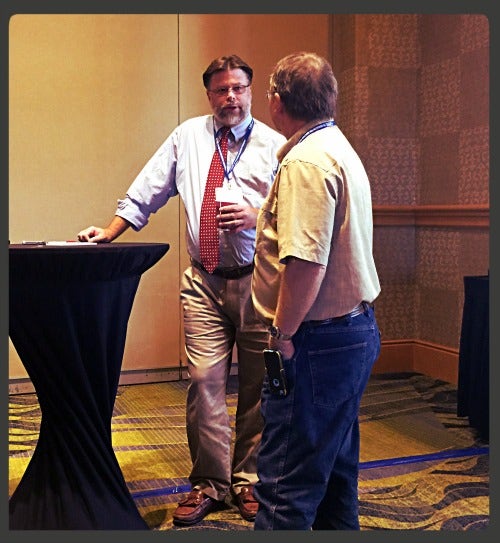I Changed My Entire Life Through Mindfulness — How You Can, Too
My life was filled with anxiety and stress. One summer changed all of that.
 Courtesy of the author
Courtesy of the author "Hey, did you see that?"
"No, I missed it. What was it?"
Does this conversation sound familiar? It sure does to me. My days were so busy and hectic that I had no time to care to notice something other than the task at hand. At the end of each day, I wondered where the day went! I had always lived that way, until recently.
A few years ago, I changed jobs to one which allowed me to have the summer off. After 20 years of working year round, having a few months off was strange, and even unsettling.
After a week,I had no idea what to do with myself. I was "forced" to slow down. It wasn't comfortable at first but over time, I started to discover that I was physically, mentally, and spiritually slowing down.
As I slowed down, I found myself feeling more peaceful and as the summer progressed, I was no longer anxious, I didn't rush, and I began to notice the world around me.

I wasn't yet consciously aware of this, but I was beginning to live mindfully. As I slowed myself, I focused my thoughts and attention to the present moment. No longer was I dwelling on my past nor anxious about the future.
Wow! What a change for me as previously I was the king of anxiety and worry!
Jon Kabat-Zinn, creator of the Stress Reduction Clinic and the Center for Mindfulness in Medicine, Health Care, and Society, defined mindfulness as "a means of paying attention in a particular way; on purpose, in the present moment, and nonjudgmentally."
Personally, the two key phrases in this definition are "on purpose" and "non-judgmentally". To find our inner peace, we need to consciously make the choice to spend time every day focusing our attention on what is happening around us and within us.
Our focus is not meant to judge what is happening, just to notice it and experience it. As we become aware of our surroundings and inner-self, we become aware of life’s joys and potential. In this state of focused awareness, we are enabled to see solutions, to see hope and happiness.
The goal of mindfulness is for us to slow down enough to fully experience life. Mindfulness is not a means to avoid negative aspects of life, but to fully live those experiences so as to learn how to cope with them in a healthy way.

Many of us try to avoid negativity, yet discover we may be successful at avoidance for a time, yet once again we are hit with that which we were avoiding.
Mindfulness asks us to be aware of all of our emotions, to feel everything, even the negativity. In so doing, we end up coping with what we at first wanted to avoid. Coping teaches us skills for dealing with future negativity in our lives.
Living mindfully is a daily practice of noticing the little things.
For example, one can eat mindfully by doing so intentionally, savoring each bite, rather than rushing through a meal without truly tasting the food.
During your commute or rushing from one task to another, one can mindfully (intentionally) notice the details of the flora, buildings, people, cracks in the sidewalk, etc.
How does mindfulness lead us to peaceful feelings? The short answer: mindfulness guides us to live in the moment, for it is only in the moment where we have "control" in our lives.
By control, I mean our ability to change our thoughts and perceptions. If I allow my thoughts to remain in either the past or the future, I will suffer from stress and anxiety since I have no control over those time periods.
All I can do with the past is learn lessons. All I can do with the future is prepare, in the moment, for the unknown which has yet to happen. Therefore, keeping my thoughts focused on the present moment allows me to feel life to its fullest while choosing the thoughts I wish to think.
5 years later I now find myself living in a sense of peace. Does this mean my life is now perfect? Not at all! What it does mean is that through mindfulness I learned a new set of coping skills.
This is what I've learned since that summer:
- Spend time each day in meditation, whether it be in stillness or walking. Just 10-20 minutes a day will calm and center you.
- Each time my thoughts venture to either the past or the future, I consciously change my thoughts to the present moment.
- Spend time noticing the little things in life. Observe your surroundings, feelings, and thoughts.
- If you notice you don't like how you feel or you're not feeling at peace, change your perspective and redo numbers 1-3 above.
- Always believe in hope, even if you don't feel hopeful at the moment. Hope and change are possible even without my belief in it.
Inner-peace is attainable if we take the time to focus our thoughts on the present moment. It takes practice; I’m still working on it. But if you have the desire to incorporate mindfulness into your daily practice, follow this maxim: "Progress, not perfection."
Contact Chris about how coaching and life counseling can make your life peaceful and less anxious. Chris is the founder, life coach & counselor at Lifesjourney Life Coaching, LLC.
